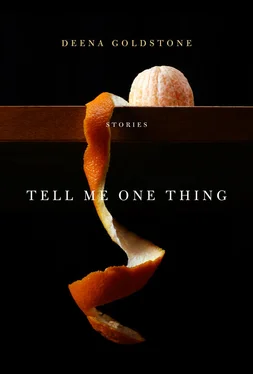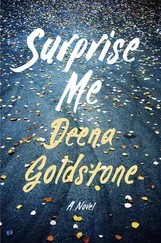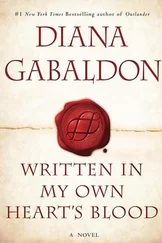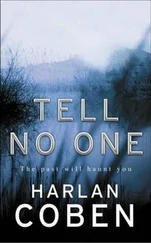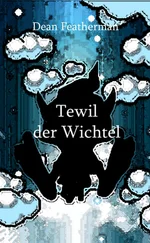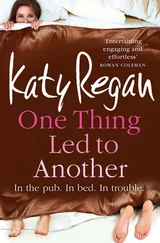It’s like someone has removed all his blood , Ellen thinks as she opens the sliding glass door and steps back into the living room. “Do you believe in vampires?” she asks him.
And he grins, a wide, wholesome grin, which is what she had hoped for. This grinning Jamie she recognizes.
“As in ‘I vant to suck your blood’? Or are we speaking metaphorically here? Because metaphorically, yes, I do believe in vampires.”
“Metaphorically?” she teases him. “No one would know you’re an English teacher.”
He pours her coffee and puts it on the breakfast bar and she climbs aboard a stool and they each sip their coffee and are silent. He wants to ask her what she’s doing here. She wants to ask him the same question— What are you doing here, Jamie? What’s happened to you since I left the States? But neither does. The admonition from their childhood to avoid intrusive questions — to mind your own business — still censors their speech.
“Do you want to sleep for a while?” Jamie asks instead.
“Sleep? I just got here. Take me somewhere, show me something, introduce me to someone. Feed me!” Ellen suddenly remembers she’s ravenous.
“Okay.” He grins again. Ellen can’t get enough of that grin. “I can do the last. There’s somewhere we can go for breakfast you’ll like.”
“Perfect!”
JAMIE AND ELLEN WALK SLOWLY into Hillcrest, a part of San Diego Jamie likes. It feels a little offbeat to him, not dangerously so, but not bland or modern or touristy as some of his adopted city can be. It’s only a few minutes past seven and the staff at Sweet & Savory is just setting out the bright blue metal tables that occupy a thin strip of sidewalk.
Inside the shop, Ellen is instantly delighted. “Oh, look!” she tells Jamie as she surveys the large, open, high-ceilinged room, mostly taken up by enormous ovens and bread-making tables.
“I know,” he tells her, amused at her exuberance, “I’m here all the time.”
Behind tall panels of glass, customers can watch the various breads being mixed and kneaded, baked, and taken out of the ovens before being loaded onto cooling racks where they are displayed for sale.
“Oh, the smell!” Ellen says.
“And they have pastries.” Jamie shows her the bulbous bakery case with its shelves upon shelves of flaky and sweet enticements. “There are scones or muffins, croissants, tarts, slices of frittata …”
“One of each!” she says instantly.
He grins at her, shaking his head.
“What?” she asks him. “I have appetites.”
“Go get us a table outside,” Jamie says, “and I’ll bring the food and cappuccinos.” He’s still smiling. The expression on his face makes Ellen happy.
AT THE SMALL ROUND TABLE, just big enough for two people, a Shasta daisy resting in the center bud vase, white and fresh against the vivid blue, Ellen heaves a sigh as she sits down. She’s made it here. She loves her brother. Everything will be all right. At this moment, she’s certain of it. Checking to make sure Jamie is still engaged in pointing out their breakfast, she lights a quick cigarette.
She tells herself to calm down, that she must take things slowly. They will have to find their way back to that old intimacy that made them both feel some measure of safety. Maybe then he’ll be able to hear her. Small steps , she cautions herself, although her blood is rushing with the urgency of disclosure.
“It’s not one of everything, but it’s a sampling,” Jamie says as he unloads a tray holding several plates of various muffins — blueberry, corn with poppy seeds, banana nut — scones, and two croissants. There’s a small bowl of clotted cream, another of jam, and one of sliced strawberries. He knows it’s too much, but Ellen revels in excess. “The coffees are coming,” he says as he sits down.
Ellen takes the chocolate croissant and watches a wisp of steam rise into the damp morning air as she opens it. “Oh, heaven,” she says, “warm from the oven.” She attends to adding jam, making sure to avoid her brother’s eyes as she volunteers, “We should call Mom today.” She knows what Jamie’s going to say, and he says it—“What for?”
“Because today must be a hard one for her,” Ellen says, her tone neutral. “It’ll bring back the whole week. Those days in the hospital. The funeral. How she felt.”
“And what I did.”
“She’ll have forgiven you by now.”
“That’s not the point. I haven’t forgiven her.”
“Oh, Jamie, she did the best she could.”
“And it wasn’t good enough,” he snaps back at her.
And then there’s silence. Each looks away. Ellen watches a young gay couple walk their Jack Russell terrier across the street, holding hands as they stroll. One man lays his head, briefly, on the other’s shoulder, then straightens up and, incongruously, begins to sing. Ellen is riveted by his total lack of self-consciousness.
Jamie replays the scene from a year ago in his mind, the act for which he needs to be forgiven. He wouldn’t take back a second of it. Even now he feels entitled to the exaltation he felt, the declaration of his emancipation from the lies of his family as he met his mother’s gaze and continued on, tossing his father’s clothes to the nearest greedy hands — shirts, sweaters, shoes, and then that maroon dressing gown the old man always wore at night.
And a deeper memory pushes in that he doesn’t want to have, a much older one. Not this memory , he tells himself, please , but it rushes forward anyway, the floodgates open. There is his father, wearing that gown. Jamie remembers the tiny black fleur-de-lis scattered across the silk, and he sees it flapping open against Hugh’s startlingly white shins as he chases his fourteen-year-old self throughout the house. Hugh is very drunk, sputtering, yelling. Jamie remembers his father’s steaming red face. And he sees the enormous butcher knife Hugh brandishes above his head as he runs Jamie out the kitchen door. His mother, at the sink washing dishes, doesn’t turn around. Into the November snow Hugh chases him, bellowing all the while, “It’s your turn to die, Jamie!” And Jamie, terrified, had believed him, believed that if his father had caught him, he would have plunged in the knife.
A COLLEGE KID WEARING a large white apron and a patterned bandanna around his forehead brings their coffees. He has that haven’t-shaved-in-a-couple-of-days look that for the life of her Ellen can’t figure out. Do they ever shave? Or do they shave a little? How is it possible to always look like you need a shave?
“Hey,” he says to Jamie, “nice to see you again,” and Jamie nods at him. Then there’s more silence between the siblings.
“Look,” Jamie finally says, “I moved three thousand miles away so I can put all the O’Connor shit behind me. There’s no fixing it.”
“I don’t know, Jamie,” Ellen begins tentatively. She tries to tread very lightly now. “We can’t do anything about the past, but I think we can—”
“We were brought up in a combat zone,” he cuts her off, “and we’ve all been crippled by it. Every one of us, except maybe Marianne. End of story.”
“I don’t feel like a cripple,” Ellen says very carefully.
“No?” Jamie challenges her, the image of his sister barely alive at their father’s wake vivid in his mind.
Ellen knows precisely what he means. “At least not now.”
“Good for you.” And he looks away again.
She studies his profile. His jaw is set, his lips a thin line. This isn’t the face she wants to see. She offers him something. “Do you want to know why I looked that way when I came to Buffalo?”
“I’m afraid to say yes,” Jamie tells her without taking his eyes off the small shops lined up across the street. Ellen waits. Jamie is deliberate, slow to reveal even a small part of his soul. She knows this about her brother. Finally he turns and meets her eyes, his voice a whisper. “I was so afraid you were dying, El.”
Читать дальше
